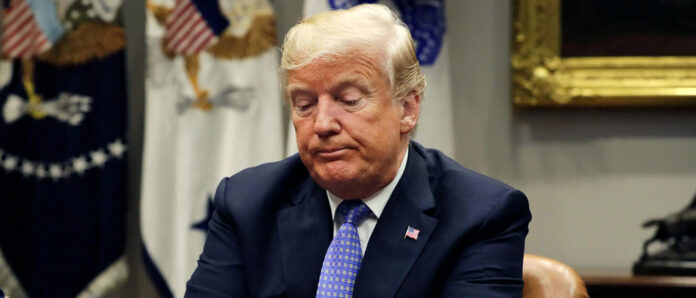In the turbulent arena of international discourse, where narratives are wielded as strategic weapons, a recent statement from the SACP cuts a definitive line through the noise.
The party’s unequivocal rejection of former US President Donald Trump’s claims of a “white genocide” in South Africa is more than a political rebuttal. It is a diagnosis of a deeper social sickness — the deliberate propagation of disinformation to obscure greater crimes.
This analysis examines the SACP’s positioning not merely as a partisan communiqué but as a deliberate act of narrative correction in a world grappling with the painful transition from a unipolar to a multipolar reality.
Surgical intervention
The SACP’s response to Trump’s assertions functions as a surgical intervention. The claims of systematic violence against Afrikaners are labelled not just as false but as “racist propaganda. A futile effort to divert attention from the real genocide against the Palestinian people”.
This framing is critical. It shifts the conversation from a defensive posture to an offensive one, redirecting the gaze of the international community from a fabricated crisis to a documented one. The party anchors its argument in a foundational principle: the land question in South Africa cannot be honestly discussed without acknowledging the historical dispossession of the black majority under colonialism and apartheid.
By highlighting Trump’s “blind eye” to this enduring legacy, the statement exposes a selective morality that feigns concern for one group while ignoring the historical and ongoing grievances of another. This is not a dismissal of all white South African concerns, but a specific condemnation of a foreign political figure’s instrumentalisation of racial anxiety for his own ends.
This act of redirection forms the core of the statement’s purpose. The SACP methodically channels the energy spent on debunking falsehoods toward illuminating what it identifies as a verifiable humanitarian catastrophe. The condemnation of the “apartheid Israeli settler regime’s genocide” is stark and uncompromising.
Destruction of a nation’s survival and identity
The language is precise, detailing the destruction of “hospitals, healthcare centres, schools, learning institutions, and places of worship” — a deliberate cataloguing of societal pillars whose targeting constitutes a profound rupture in the fabric of civilian life. This is not abstract criticism. It is an indictment based on the dismantling of a people’s infrastructure for survival and identity.
Furthermore, the statement expands this indictment to include “attacks by the same regime on Lebanon,” labelling them a “blatant violation” of sovereignty and a “fully-fledged crime under international humanitarian law”.
By yoking the situations in Gaza and southern Lebanon together, the SACP constructs a pattern of aggressive, unilateral action that it presents as the true focal point for global concern. The call for the regime’s leaders to “be held to account” is a direct challenge to an international legal and political order perceived as selectively enforced.
In this context, Trump’s rhetoric is painted as a strategic smokescreen, an attempt to muddy the waters of public discourse to provide cover for an ally and to maintain a waning unipolar dominance.
Symptom of a larger system
The final section of the statement reveals the ultimate diagnosis and proposed cure. The SACP identifies the root malady as “United States-led imperialist warmongering offensives.” In this worldview, Trump’s comments are not an isolated incident but a symptom of a larger system desperately trying to preserve its hegemony.
The proposed remedy is a fundamental reordering of global power. The party’s reiterated support for the “BRICS Plus partnership” is presented as a vehicle to “build a just and better world and systematically end uneven global development and the exploitation of one country’s resources and people by another.”
This is the visionary conclusion of the argument: the path to harmony and justice lies not in reforming the existing system, but in constructing a multipolar alternative that can balance and check imperial ambitions.
The communiqué, therefore, operates on three interconnected planes. On the surface, it is a political statement defending South Africa’s sovereignty. On a deeper level, it is a moral argument that seeks to recalibrate the world’s moral compass toward Palestine and Lebanon.
Worldwide unity of the working class
On its most profound level, it is a geopolitical analysis that locates these conflicts within the death throes of a unipolar world order. The SACP positions itself not just as a party speaking for South African interests but as a node in a “worldwide unity of the working class and all progressive forces”.
The power of this narrative lies in its cohesive structure. It begins by clearing the undergrowth of distraction, proceeds to illuminate a stark reality it believes the world is ignoring. And it concludes by offering a systemic solution. It treats the global body politic as a patient suffering from a sickness of misinformation and imbalanced power. And it prescribes a regimen of clear-sighted truth-telling and collective action.
In an era of fragmented media and competing realities, such a coherent, if contentious, worldview provides a scaffold for understanding a complex and violent world. The statement stands as a testament to a nation, and a party, determined to assert its own voice on the global stage. One that is refusing to have its story written by outsiders and insisting that the world confront the truths it holds to be self-evident.



